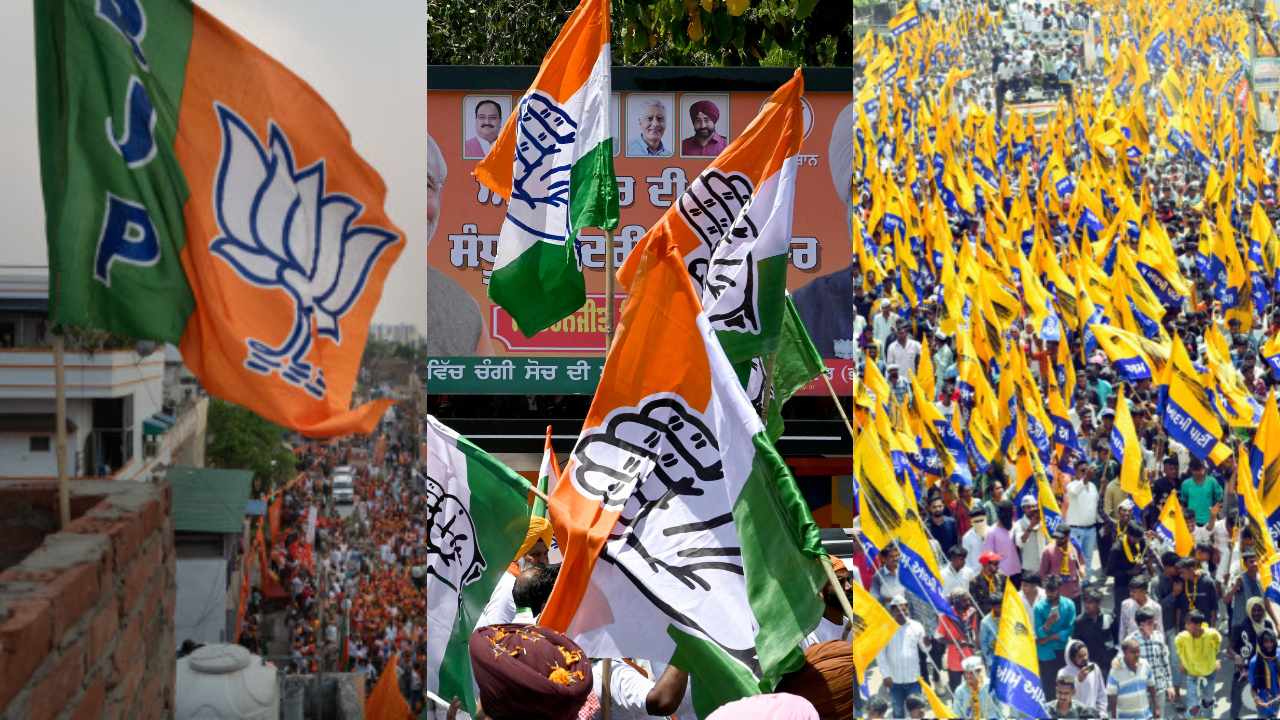The blurring lines between online and offline political campaigning | India News
[ad_1]
Dr Sanjeev Singh, a journalist and academic, recently discussed his debut book, “The Online Decoding X to Predict Election Outcomes”, published by Bloomsbury India, in an engaging conversation on TOI Bookmark. The book is a scientific study that explores the diminishing gap between online and offline political campaigning, drawing from Singh’s extensive experience in television news and digital media.
Driven by his interest in the impact of technology on political communication, Singh collected data from various state elections, beginning with the 2017 UP and Gujarat elections.He and his team concentrated on four primary issues: jobs, development, corruption, and farmers, analysing how politicians and political parties engaged with these topics on social media platforms like Twitter (now known as X).
To effectively analyse the extensive data, Singh partnered with data scientist Rishabh Srivastava to develop the Singh Srivastava Vote Predictor (SSVP) model. This model focuses on the percentage of engagement each leader receives on social media rather than absolute numbers, correlating it with their vote share in the elections. The model successfully predicted the outcomes of the 2018 Chhattisgarh and Rajasthan assembly elections.
Singh stresses the importance of responsible social media use with reasonable restrictions, despite its role in democratising information and data. He also emphasises that politicians cannot solely rely on social media campaigns during elections, they must actively engage with their followers regularly and ensure that their online and offline activities are synchronised.
Looking forward to the 2024 elections, Singh anticipates that while X will continue to play a crucial role in real-time information dissemination, other platforms like YouTube may also gain more influence. He acknowledges the limitations of studying social media data, particularly with the recent changes implemented by Elon Musk on X, which restrict access to historical data for researchers and developers.
Undeterred by these challenges, Singh remains dedicated to investigating the evolving relationship between social media, human behaviour and political communication. He intends to continue refining the SSVP model and adapting it to the changing digital landscape, recognising the complex interplay between the interests of users, fintech giants and regulatory authorities.
Singh’s book presents a pioneering approach to understanding the impact of social media on political campaigns and election results in India. As the boundaries between online and offline campaigning continue to fade, the work offers valuable insights into how politicians and voters navigate this new reality and how data can be utilised to predict and shape the future of Indian politics.
Driven by his interest in the impact of technology on political communication, Singh collected data from various state elections, beginning with the 2017 UP and Gujarat elections.He and his team concentrated on four primary issues: jobs, development, corruption, and farmers, analysing how politicians and political parties engaged with these topics on social media platforms like Twitter (now known as X).
To effectively analyse the extensive data, Singh partnered with data scientist Rishabh Srivastava to develop the Singh Srivastava Vote Predictor (SSVP) model. This model focuses on the percentage of engagement each leader receives on social media rather than absolute numbers, correlating it with their vote share in the elections. The model successfully predicted the outcomes of the 2018 Chhattisgarh and Rajasthan assembly elections.
Singh stresses the importance of responsible social media use with reasonable restrictions, despite its role in democratising information and data. He also emphasises that politicians cannot solely rely on social media campaigns during elections, they must actively engage with their followers regularly and ensure that their online and offline activities are synchronised.
Looking forward to the 2024 elections, Singh anticipates that while X will continue to play a crucial role in real-time information dissemination, other platforms like YouTube may also gain more influence. He acknowledges the limitations of studying social media data, particularly with the recent changes implemented by Elon Musk on X, which restrict access to historical data for researchers and developers.
Undeterred by these challenges, Singh remains dedicated to investigating the evolving relationship between social media, human behaviour and political communication. He intends to continue refining the SSVP model and adapting it to the changing digital landscape, recognising the complex interplay between the interests of users, fintech giants and regulatory authorities.
Singh’s book presents a pioneering approach to understanding the impact of social media on political campaigns and election results in India. As the boundaries between online and offline campaigning continue to fade, the work offers valuable insights into how politicians and voters navigate this new reality and how data can be utilised to predict and shape the future of Indian politics.
[ad_2]
Source link
CATEGORIES INDIA
